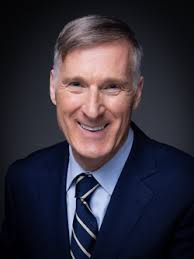
Introduction
Maxime Bernier, leader of the People’s Party of Canada (PPC), has become a noteworthy figure in Canadian politics. His rise to prominence correlates with a growing demand for alternative political perspectives, reflecting shifts in voter sentiments. Understanding Bernier’s influence and policies is crucial for comprehending the evolving political landscape in Canada.
Political Career and Background
Maxime Bernier began his political career as a member of the Conservative Party, serving in various cabinet positions from 2006 until 2015. Notably, he was Minister of Industry and later, Minister of Foreign Affairs. After leaving the Conservative Party due to differences in opinion regarding party direction and policy, he founded the PPC in 2018. His party’s platform, which focuses on individual freedoms, reduced government intervention, and fiscal conservatism, has captured the attention of many Canadians.
Recent Developments
As of 2023, Bernier and the PPC have gained traction in certain regions, mainly in Western Canada and rural areas. The party has recently rallied against COVID-19 mandates and lockdown policies, positioning itself as a libertarian alternative in response to perceived government overreach. In September, Bernier held a rally in Calgary where he discussed the importance of personal freedom and criticized the federal government’s economic policies, expressing concerns over inflation and fiscal irresponsibility.
Bernier’s unique approach has led to a mixed reception; while he has garnered a loyal following, he has also faced criticism for his controversial statements and positions on immigration and public health. His ability to navigate these controversies remains vital to his electoral prospects.
Conclusion
Maxime Bernier’s influence in Canadian politics cannot be underestimated, especially as the political dialogue shifts towards populist and libertarian ideals. With the next federal election anticipated in 2025, Bernier’s PPC will likely play a significant role in shaping discussions around governance, individual rights, and economic policies in Canada. Observing how Bernier adapts to the changing political climate will be critical for both supporters and opponents as they prepare for a potential resurgence of his party’s ideals within the broader Canadian political discourse.



